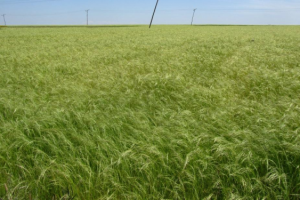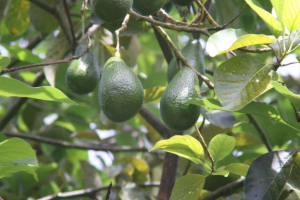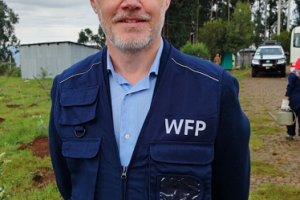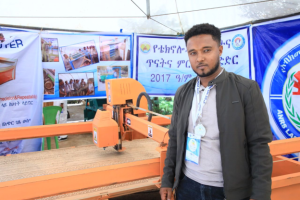
Several cultural and religious holydays punctuate Ethiopia’s calendar. When it comes to colorfulness and uniqueness Timket (Epiphany) stands out as it brings together almost all cross section of society. Transcending differences, Timket has turned out an event of jubilation.
It has become a holiday which almost all ethnic groups, members of different religions as well as tourists, who come from different corners of the globe, celebrate. Besides its religious and cultural values, the day also has special significance, for souvenir shops are frequented by tourists and others.
As centers for traditional clothes and artifacts that display home-grown artisanship, the shops could be taken models of Ethiopia. Whoever drops in, s/he will find various handcrafts that represent Ethiopia.
The shops have almost everything that represents the cultural and religious instruments used by Ethiopians. This souvenir shops are thronged by tourists and Ethiopians during Timket. Serena Angelo, is an Italian. This journalist met him at souvenir shop around Ethiopian Postal Service main office.
Angelo said, “As I observed most Ethiopians are beautiful and compassionate. The costumes and the handicraft items we see displayed here are the true manifestation of Ethiopians skills and cultures. The costumes, Ethiopians put on during holidays are unique and eyecatching.” According to him, even if they are faced with challenging situations, they weather hardship with a smile on their face.
Their resilience is appreciable. They have clean hearts and are happy to share what they got. “You can feel their heart on their face. No matter what their burden is, Ethiopians have a shining face that reflect their faith and hope in life. This is especially visible during holidays.”
Teklu Petros, is one of the souvenir shop owners around Ambassador Theatre. Like most souvenir shops owners, he had finalized preparation to sell his traditional clothes and handicraft items. Teklu believes that selling traditional clothes and souvenirs is one of the best ways to introduce or popularize Ethiopia’s time-old culture, values and identity to the global community.
“Whenever a given tourist comes to Ethiopia and return back home s/he needs something to take to his/her families friends and relatives. Traditional clothes and souvenirs are best choices in this regard,” he said. According to his observation, almost all tourists that visit souvenir shops have good information about Ethiopian traditional clothes and souvenirs.
They got the information either from the book they read or from friends. Their knowledge goes to the extent of telling which costume represents which ethnic group. Whenever such tourists come to Ethiopia, they need to confirm the veracity of the information they collected. He said, as the traditional clothes and souvenirs are handmade products they attract tourists. Melaku Petros, is the other souvenir shop owner. He sells handmade articraft items in his mini shop.
Melaku said that “We may not cater things to tourists’ ultimate satisfaction. Nonetheless, they have a great interest on souvenirs and hand-woven traditional clothes. ” Melaku called up on pertinent bodies intervention in filling identified gaps. Involving unemployed youths in the sector could help kill two birds with a stone promoting our culture and creating job opportunities for the youth, he added. He said, there is still an outmoded mentality that is scorn for labor. Engaging in handcrafts is seen by the unwise as something unprofessional.
The truth is it is a lucrative business. In this respect much is expected from stakeholders in promoting the sub sector. The Ethiopian Orthodox Church mark Timket to commemorate the baptism of Jesus Christ at river of Jordan in the hands of John the Baptist. Meskel festivity is not a one day celebration.
It is a threeday festival. On the first day of the festival, early in the afternoon, the Tabot (replica of the Ark of the Covenant) from each church is carried out and taken to a nearby river, lake or a dam prepared for the intended purpose. Written documents indicate that the first day of the festivity is called Keiera, taken from the Amharic word, ‘ketere ‘ which is to mean making a dam as it is usual to make a pond in some places, where there is no enough river water for the celebration of Timket.
Herald January 20/2019
BY LEULSEGED WORKU





